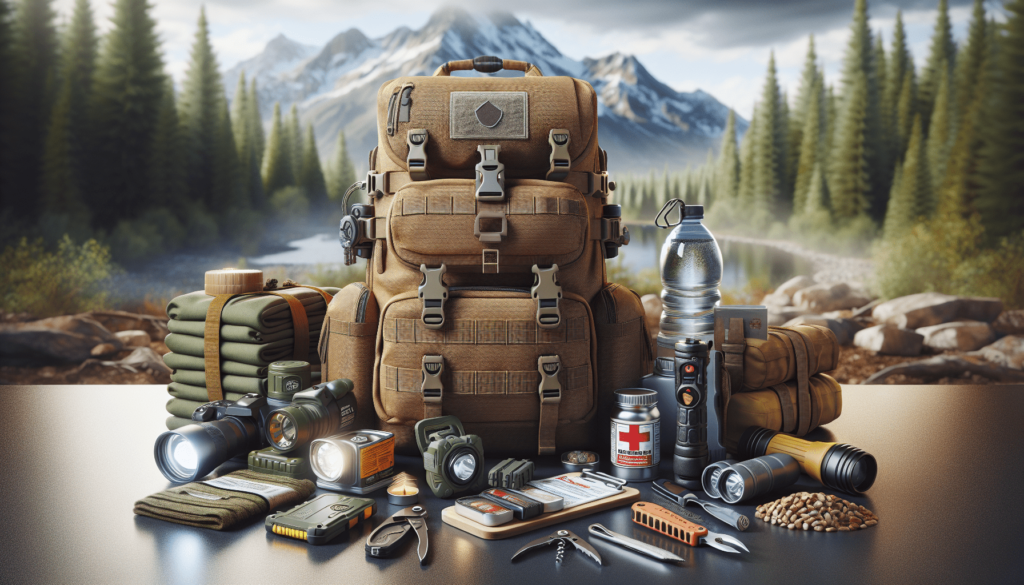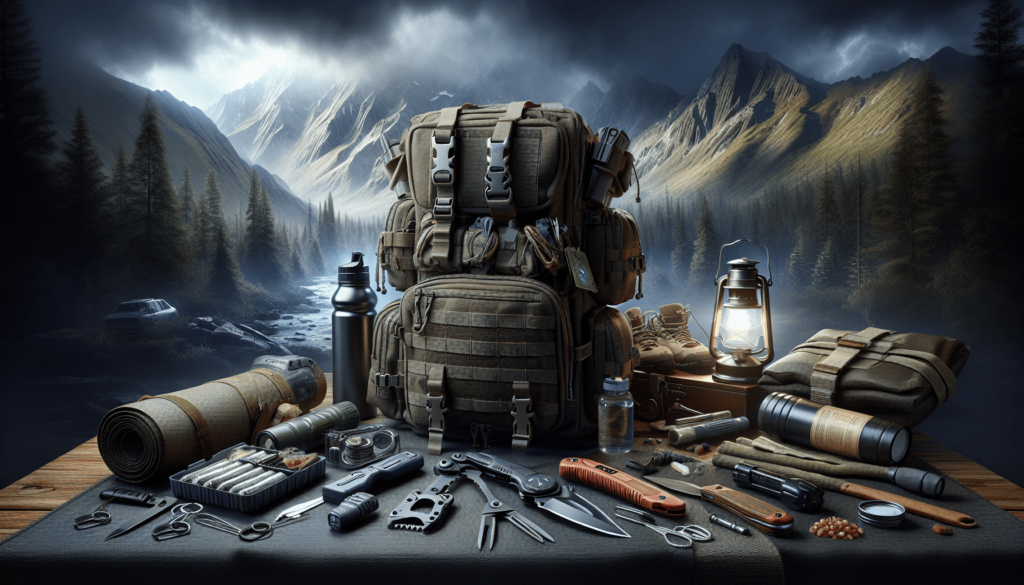
Have you ever wondered, “What does ‘preppers’ mean?” I know I have. The term “preppers” might conjure up images of people with underground bunkers and an arsenal of canned goods, but is that all there is to it? Let’s unravel the mystery together. In this article, we’ll look at the ins and outs of what it means to be a prepper.
Understanding Preppers: More Than Just Stockpiling
The popular image of preppers often comes with a side of skepticism. People might see them as paranoid or extreme, but that’s far from the full picture. At its core, being a prepper is about being prepared. It’s like having a spare tire in your car or a first aid kit at home—only on a larger and more comprehensive scale.
The Origin of the Term “Preppers”
The term “prepper” is relatively new but has roots that go deep into human history. Ever since our ancestors learned to store food for the winter, the concept of preparedness has been ingrained in our DNA. The modern term started gaining traction around the 1970s. Back then, people began to worry about economic downturns, energy crises, and geopolitical shifts. Since then, the scope and definition of prepping have evolved to include various types of preparedness.
Different Types of Preppers
Preppers are not a monolithic group; they come in many forms and flavors. Some focus on financial security, others on food and water storage, while some might be more interested in self-defense or medical preparedness. Hence, the community of preppers is diverse.
The Foodie Preppers
These folks are all about ensuring they have enough food to last through any crisis. They could be canning fruits and vegetables, stocking up on freeze-dried meals, or even maintaining a garden to grow their own food. It’s more than just hoarding food; it’s about knowing how to sustain themselves if the supply chains break down.
The Financial Preppers
Financial preppers focus on ensuring they are financially secure if something happens. This could mean anything from diversifying investments to keeping cash and precious metals on hand. They are the ones who probably have a side gig or two and understand the importance of multiple streams of income.
The Medical Preppers
This group prioritizes health and wellness. They might have an extensive first aid kit, know basic and advanced medical procedures, or stockpile essential medicines. For them, a big part of prepping is making sure they can handle medical emergencies when professional medical help is not readily available.
The Defensive Preppers
These preppers concentrate on personal safety and defense. This might involve anything from self-defense training to owning weapons for protection. It’s not just about arming themselves but also knowing how to stay safe in volatile situations.
| Type of Prepper | Focus Area |
|---|---|
| Foodie Preppers | Food storage, gardening, canning |
| Financial Preppers | Financial security, investments, multiple incomes |
| Medical Preppers | Health supplies, medical training |
| Defensive Preppers | Personal safety, self-defense, weapons |

Why People Become Preppers
The motivations behind why people become preppers can be as varied as the individuals themselves. Many people are driven by personal experiences, rational calculations, or even a deep-seated instinct to protect their loved ones.
Personal Experiences
Sometimes, personal experiences can trigger someone to embrace prepping. Maybe they lived through a natural disaster, like a hurricane or earthquake, and realized how unprepared they were. That moment of vulnerability can be a powerful motivator to change their habits and start taking preparedness seriously.
Rational Calculations
There are those who look at the world and see potential risks—economic downturns, climate change, or global pandemics—and decide it’s only logical to be prepared. They view prepping as a form of insurance, a way to mitigate risk and ensure they can navigate turbulent times.
Protecting Loved Ones
For many, the primary motivation is the instinctual drive to protect their family. Imagine having kids and realizing you don’t have enough resources to keep them safe and fed in a crisis. That kind of motivation can turn anyone into a dedicated prepper.
Common Myths and Misconceptions
Despite the growing acceptance of the prepper culture, there are still many myths and misconceptions surrounding it. Let’s debunk a few of them.
Myth 1: Preppers Are Paranoid
One of the most common misconceptions is that preppers are paranoid. While there may be some who take things to an extreme, most preppers are average individuals who simply believe in being prepared for worst-case scenarios. Being cautious and planning ahead doesn’t equate to paranoia.
Myth 2: Preppers Are Anti-Social
Another myth is that preppers are loners who isolate themselves from society. In reality, many preppers are highly community-oriented. They often network with other preppers to share resources and knowledge. The idea is not to survive alone but to create a resilient community.
Myth 3: Preppers Hoard Resources
While preppers do stockpile supplies, there’s a crucial difference between hoarding and prepping. Hoarding is often irrational and unsystematic, aimed more at the act of collection than practical utility. Prepping is methodical and intentional, focused on sustainability and long-term survival.
Myth 4: Prepping is Only for Doomsday Scenarios
Many people think that prepping is only useful for doomsday scenarios like nuclear war or zombie apocalypses. The truth is, prepping can equally apply to everyday emergencies like job loss, severe weather events, or long-term power outages. It’s not just about the end of the world, but about being ready for life’s uncertainties.

The Essentials of Prepping
Contrary to what some might believe, you don’t have to build a bomb shelter or move to a remote cabin in the woods to be a prepper. Here are some basic steps you can take to get started.
Food and Water
The foundation of any prepper’s plan is ensuring they have enough food and water. Start by building a small stockpile of non-perishable foods and bottled water. Aim for a supply that could last your family at least three days, though many preppers strive for a month’s worth or more.
First Aid and Medical Supplies
Having a well-stocked first aid kit is crucial. Basic items like bandages, antiseptics, and over-the-counter medications are a must. If you or a family member takes prescription medications, try to have a surplus on hand if possible.
Shelter and Warmth
Depending on where you live, shelter and warmth are key concerns. Make sure you have blankets, sleeping bags, and a safe alternative heating source if you live in a cold climate. Even small things, like tarps and duct tape, can be invaluable.
Communication
In a crisis, staying connected is critical. Keep a battery-powered or hand-crank radio to get news updates. Also, have a plan for how you’ll communicate with loved ones if phone lines are down. Walkie-talkies can be useful for this.
Personal Safety
If you’re inclined, consider taking up some form of self-defense training or at least understanding basic safety measures. It’s not just about physical threats but also knowing how to keep your home secure.
Networking and Community in Prepping
You don’t have to go it alone. Prepping can be a community effort, and often, strength lies in numbers.
Joining Prepping Groups
There are many prepping groups and communities both online and offline. These groups can offer valuable advice, share resources, and provide support. Think of it as a more organized neighborhood watch but focused on broader preparedness.
Sharing Skills and Knowledge
Being part of a community means you don’t have to be an expert in everything. Maybe you’re good at gardening, while your neighbor is a whiz at first aid. By sharing skills and resources, everyone’s preparedness level increases.
Barter and Trade
In a long-term crisis situation, the economy as we know it might not function. Having a network where you can barter skills or goods can be invaluable. Trading canned goods for medical supplies or sharing a generator could make a huge difference.
The Psychological Aspect of Prepping
Prepping isn’t just about physical items; it’s also about mental readiness.
Dealing with Stress and Anxiety
Preparing for potential disasters can be stressful, and it’s essential to manage that stress effectively. Techniques like mindfulness, yoga, or even discussing your fears with friends can be beneficial.
Building Resilience
Mental resilience is key. It’s not enough to have supplies; you need the mental fortitude to use them effectively under stress. Taking small steps toward preparedness and gradually expanding can build both your supplies and your confidence.
Keeping a Positive Outlook
Keeping a positive outlook while prepping might seem counterintuitive, but it’s crucial. You’re not just preparing for bad things; you’re taking control of your future. That sense of empowerment can be very uplifting.
The Future of Prepping
As global instability continues to be a part of our world, the community of preppers is likely to grow. The focus may shift to more sustainable practices and incorporating advanced technology.
Sustainability
Sustainability is expected to become an increasingly significant part of prepping. This includes practices like rainwater harvesting, renewable energy sources, and permaculture gardening. The aim is to create a lifestyle that can sustain itself indefinitely.
Advanced Technology
Advancements in technology also provide new tools for preppers. Drones for surveillance, solar generators, and even advanced water filtration systems can make a huge difference in how efficiently one can prepare.
Integration into Mainstream Culture
Prepping is gradually losing its image as a fringe activity and becoming more mainstream. More people are beginning to see the practical benefits of being prepared, which is pushing manufacturers to create more user-friendly and accessible prepping tools and supplies.
Prepping as a Lifelong Practice
Being a prepper isn’t about reaching a final state of preparedness; it’s an ongoing process. Life circumstances change, as do the types of potential threats one might face.
Continuous Learning
One of the best aspects of the prepper mindset is the focus on continuous learning. Whether it’s taking a class on first aid, learning new cooking techniques that involve long-term food storage, or studying financial planning, there’s always something new to learn.
Adapting to Change
Flexibility is key. We can’t predict every possible future event, but we can adapt our plans as new information becomes available. Staying informed about world events and ongoing risks can help you stay prepared.
Involving the Whole Family
Prepping can be a family affair. Teach your children basic skills and involve them in the planning process. It can be fun and educational, giving them important life skills and a sense of security.
In the end, understanding what “preppers” mean goes beyond the clichés and stereotypes. Being a prepper is about taking proactive steps to ensure you and your loved ones are safe and secure, no matter what life throws at you. Whether it’s financial security, food storage, medical preparedness, or personal safety, prepping is a practice that is both practical and empowering. So, have you thought about what steps you might take to become just a little bit more prepared?
